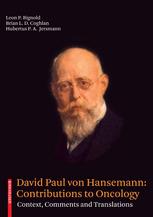

Most ebook files are in PDF format, so you can easily read them using various software such as Foxit Reader or directly on the Google Chrome browser.
Some ebook files are released by publishers in other formats such as .awz, .mobi, .epub, .fb2, etc. You may need to install specific software to read these formats on mobile/PC, such as Calibre.
Please read the tutorial at this link: https://ebookbell.com/faq
We offer FREE conversion to the popular formats you request; however, this may take some time. Therefore, right after payment, please email us, and we will try to provide the service as quickly as possible.
For some exceptional file formats or broken links (if any), please refrain from opening any disputes. Instead, email us first, and we will try to assist within a maximum of 6 hours.
EbookBell Team

4.8
14 reviewsIn 1890, just a few years after the discovery of the chromosomes, David Paul Hansemann, a pathologist-in-training with the famous Rudolph Virchow in Berlin, produced a theory of the pathogenesis of cancer involving the key current concept: that the first change which occurs in cancer is an alteration of the hereditary material of a normal cell at the site where the cancerous process begins.
In the process of linking cancer to chromosomal material, Hansemann coined the terms "anaplasia" and "dedifferentiation". These terms have remained the basis of descriptive terms concerning the microscopical appearances of tumours ever since. Nevertheless, despite the popularity of his terminology, Hansemann's ideas were attacked vigorously by almost all proponents of rival theories of the nature of cancer. Partly due to these disputes during his life-time, and partly due to other factors, interest in von Hansemann's ideas diminished during the twentieth century and his works are rarely mentioned today.
This book presents translations of all the relevant German texts, and analyses the background and context of Hansemann's theories as well as the reasons why he was almost completely forgotten. It shows that some of Hansemann’s ideas may still be relevant to cancer research today, and that he deserves to be remembered in relation to cancer as Vordenker unter den führenden Denkern seiner Zeit - The foremost of the leading thinkers of his time.